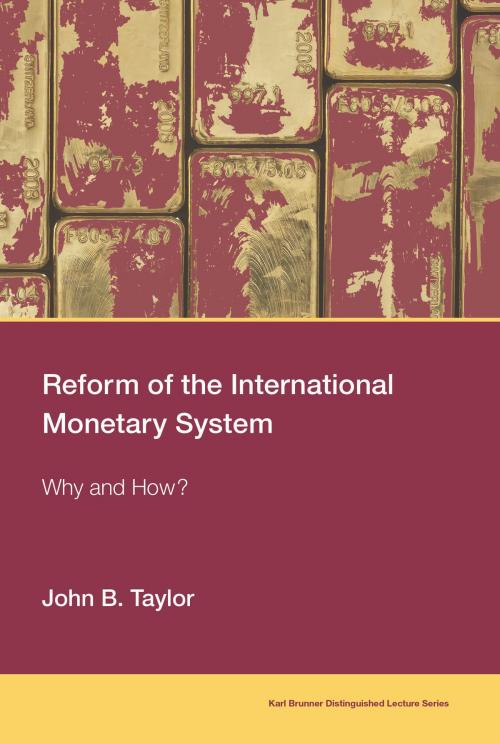Reform of the International Monetary System
Why and How?
Business & Finance, Economics, Money & Monetary Policy| Author: | John B. Taylor | ISBN: | 9780262352680 |
| Publisher: | The MIT Press | Publication: | March 15, 2019 |
| Imprint: | The MIT Press | Language: | English |
| Author: | John B. Taylor |
| ISBN: | 9780262352680 |
| Publisher: | The MIT Press |
| Publication: | March 15, 2019 |
| Imprint: | The MIT Press |
| Language: | English |
An argument that a rules-based reform of the international monetary system, achieved by applying basic economic theory, would improve economic performance.
In this book, the economist John Taylor argues that the apparent correlation of monetary policy decisions among different countries—largely the result of countries' concerns about the exchange rate—causes monetary policy to deviate from effective policies that stabilize inflation and the economy. He argues that a rules-based reform of the international monetary system, achieved by applying basic economic theory, would improve economic performance.
Taylor shows that monetary polices in recent years have been deployed either defensively, as central banks counteract forces from abroad that affect the exchange rate, or offensively, as central banks attempt to move the exchange rate to gain a competitive advantage. Focusing on the years from 2005 to 2017, he develops an empirical framework to examine two monetary policy instruments: the policy interest rate (the more conventional of the two) and the size of the balance sheet. He finds that an international contagion in central bank decisions about the policy interest rate has accentuated the deviation from standard interest rate rules that have worked in the past. He finds a similar contagion in decisions about the size of the balance sheet. By considering a counterfactual policy in the estimated model, Taylor is able to estimate by how much the policy of recent years has increased exchange rate volatility. After several rounds of monetary actions and reactions aimed at exchange rates, Taylor finds, the international monetary system is left with roughly the same interest rate configuration, but much larger balance sheets to unwind.
An argument that a rules-based reform of the international monetary system, achieved by applying basic economic theory, would improve economic performance.
In this book, the economist John Taylor argues that the apparent correlation of monetary policy decisions among different countries—largely the result of countries' concerns about the exchange rate—causes monetary policy to deviate from effective policies that stabilize inflation and the economy. He argues that a rules-based reform of the international monetary system, achieved by applying basic economic theory, would improve economic performance.
Taylor shows that monetary polices in recent years have been deployed either defensively, as central banks counteract forces from abroad that affect the exchange rate, or offensively, as central banks attempt to move the exchange rate to gain a competitive advantage. Focusing on the years from 2005 to 2017, he develops an empirical framework to examine two monetary policy instruments: the policy interest rate (the more conventional of the two) and the size of the balance sheet. He finds that an international contagion in central bank decisions about the policy interest rate has accentuated the deviation from standard interest rate rules that have worked in the past. He finds a similar contagion in decisions about the size of the balance sheet. By considering a counterfactual policy in the estimated model, Taylor is able to estimate by how much the policy of recent years has increased exchange rate volatility. After several rounds of monetary actions and reactions aimed at exchange rates, Taylor finds, the international monetary system is left with roughly the same interest rate configuration, but much larger balance sheets to unwind.















